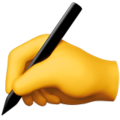Are you conducting interviews for your thesis? If so, good preparation is very important. For instance, you must know what you want to get out of the interview and tailor your questions accordingly. Your attitude during the interview also affects the outcome. This overview of interview techniques for qualitative interviews will help you conduct a successful interview.
Why are interview techniques so important?
The quality of information obtained from the interview depends on the use of good interview techniques. The more you ask the right questions and keep a good attitude, the more likely it is that you will get the information you need from the interviewee. This will also make your interviews run more smoothly.
Now, there are different types of interviews. For example, an in-depth interview with one person is completely different from a focus group. Thus, one golden piece of advice for conducting successful interviews does not exist. However, these overall interview techniques will help you get started in almost any context.
Want to know more about successful interviewing? Check out our interview roadmap.
7 useful interview techniques
-
Listen, listen, listen. In interviews, the main focus is on the interviewee. Do not take over the conversation too quickly, and do not share your personal views. Above all, let the other person talk. In between their sentences, use words like 'hmhm', 'okay' or 'oh yes' to indicate that you are still listening attentively.
-
Ask further questions. Not every interviewee will immediately give you all the information you need. In that case, keep asking questions. Ask follow-up questions about what the interviewee tells you, e.g. "Why do you think that?" or "What does that look like to you?".
-
Ask as many open-ended questions as possible. If you want to get more information than just 'yes' or 'no' or a number, choose open-ended questions. So not "Do you find that difficult?", but instead "What do you think about that?".
-
Don't be controlling. Avoid using words in your questions that(unconsciously) express your opinion. So don't ask "What do you like about this university?" (because with this, you assume that the person likes the university). Rather choose the neutral formulation 'What do you think of this university?'.
-
Make your questions clear. Be clear about what you want to know. Don't make your questions too vague and abstract. Does the answer show that the other person does not understand the question? Then, explain what you mean by it.
-
Avoid jargon. As an expert, you may be fully versed in the subject matter, but be aware that the interviewee may not be. Therefore, do not use difficult words when it is not necessary to.
-
Pay attention to non-verbal communication. It is not only what the interviewee says that matters. Body language can also say a lot. For example, pay close attention to the respondent's gaze, intonation and gestures. Is the other person emotional? Then wait a moment and deal with it appropriately. Does the interviewee look surprised? Ask if theyunderstand everything.
Also important: start the interview off right
A pleasant introduction is important in order for the interview to go well. The way you present yourself can help create a nice and familiar interview atmosphere. The other person may then feel comfortable to speak out more.
For your introduction, pay attention to at least the following:
-
Briefly introduce yourself and what you are researching. Do not give too much detail as to avoid directing the interviewee's answers.
-
Ask for permission to use the data from the conversation. Are you going to record the interview? Then also ask explicitly for permission to record and specify how you will store and process the recordings. This is important because of privacy laws.
-
Make it clear in advance that there are no wrong answers. The respondent may say whatever comes to mind.
-
Obtain informed consent. Make it clear that the respondent may stop the interview at any time (without giving a reason) or interrupt you to ask
More interview tips?
Want to go into your interviews with the respondents well-prepared? Then read our other articles on interviewing. For instance, we list what interview questions are or are not appropriate and give you tips on how to transcribe interviews afterwards.


